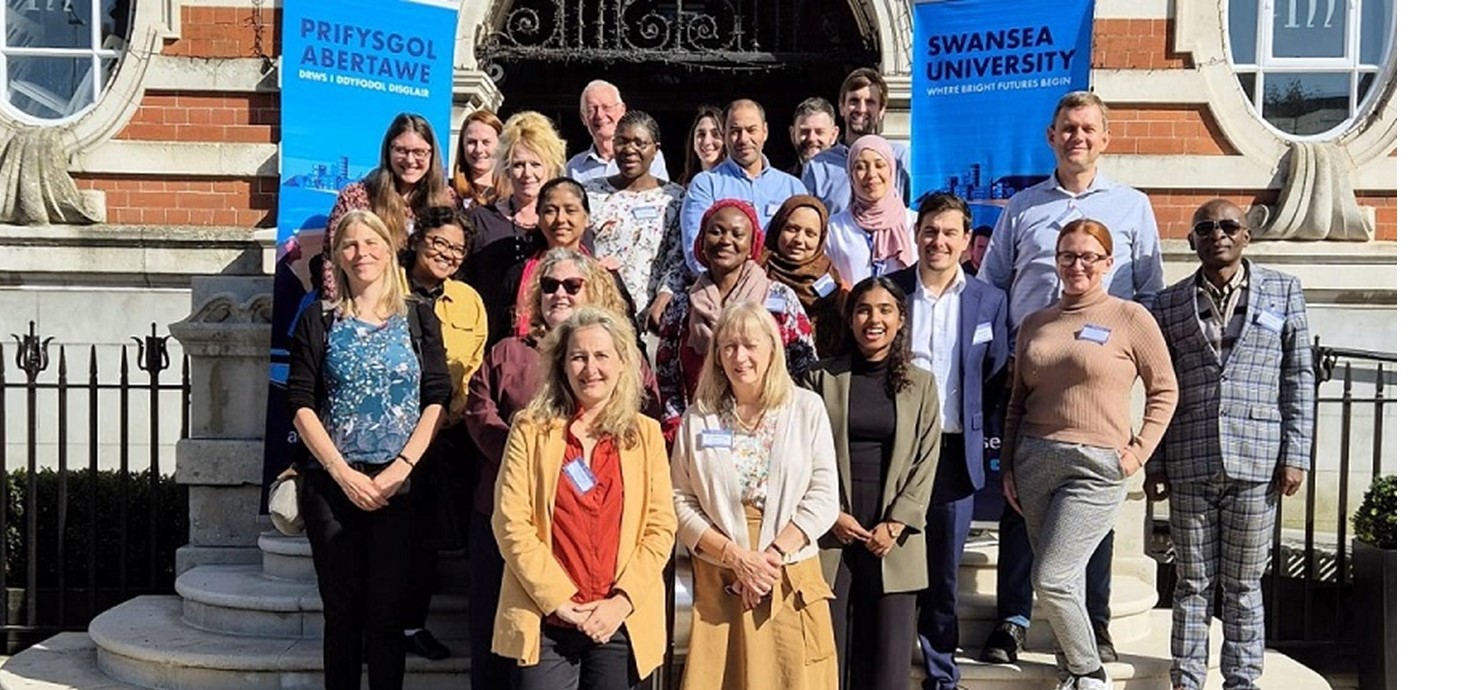
Delegates at the Swansea event, which brought together leading academics, field experts, policy officials and NGO professionals from the UK, Algeria, Bangladesh, Zimbabwe and Rwanda.
How to meet the educational needs of children affected by conflict and crisis was the subject of an international expert gathering on 16-17 September, hosted by Swansea University’s Department of Education and Childhood Studies.
The event brought together leading academics, field experts, policy officials and NGO professionals from around 20 organisations from the UK, Algeria, Bangladesh, Zimbabwe and Rwanda.
The title of the event was “Contemporary Issues in Educational Research for Children Affected by Conflict and Crisis”.
As well as research in the field, the programme also focused on policy priorities and funding opportunities. There were presentations and interactive workshops, where participants had the opportunity to engage with leading voices in the field. Topics included spaces for play and arts-based methods of teaching.
After an opening address by Prof Andy Townsend, head of the department of education and childhood studies, contributions came from the Inter Agency Network for Education in Emergencies (INEE), who shared insights on their role in this field, and from Chris Berry from the Foreign and Commonwealth Development Office (FCDO) who led a discussion on current governmental priorities for education research in crisis and conflict.
The event closed with a roundtable discussion on ways to move forward, leaving participants inspired and ready to implement the ideas and strategies shared over the two days. Indeed, work on securing funding for some new collaborative projects has already begun.
The event was a resounding success, providing a platform for lively discussions, innovative ideas, and the exploration of key research trends in the field of education research in crisis and conflict.
It was made possible through funding from the FCDO and British Academy as part of the British Academy Bilateral Chair Programme. This programme is part of a significant £20M+ FCDO project entitled ERICC, which is focused on identifying and actioning best practice in research designed to support children affected by protracted crisis and conflict.
There are just three British Academy Bilateral Research Chair positions internationally and one of these is held by Dr Justine Howard of Swansea University.
Dr Howard’s Chair brings together Swansea University and BRAC University in Bangladesh, specifically BRAC Institute of Governance and Development (BIGD), and BRAC Institute of Educational Development (IED). In this role, Dr Howard leads a wide-ranging portfolio of projects aimed at enriching the education and development of children affected by crisis and conflict in Cox’s Bazar, Algeria and the UK.
Dr Justine Howard of Swansea University, British Academy Chair, said:
“Educational research for children affected by crisis and conflict is such an important and current issue. The venue offered the perfect atmosphere for intellectual exchange and networking. It was a fantastic opportunity to connect with peers from around the globe and to learn from fellow experts in the field. We are very much looking forward to collaborating with new partners on future ventures.
The success of this British Academy colloquium, hosted by Swansea, reflects the University's commitment to fostering collaboration and knowledge-sharing within the education community at a local, national and international level. Plans are already under way to action some of the initiatives suggested by delegates and for another future event, which promises to build on the momentum of this year’s achievements.”
Department of Education and Childhood Studies - find out more
